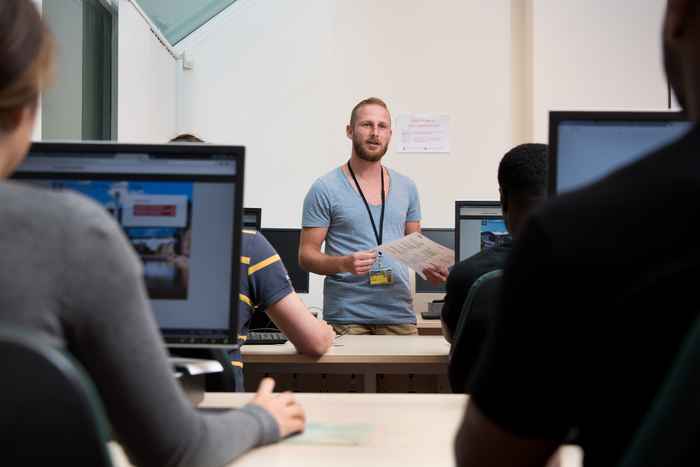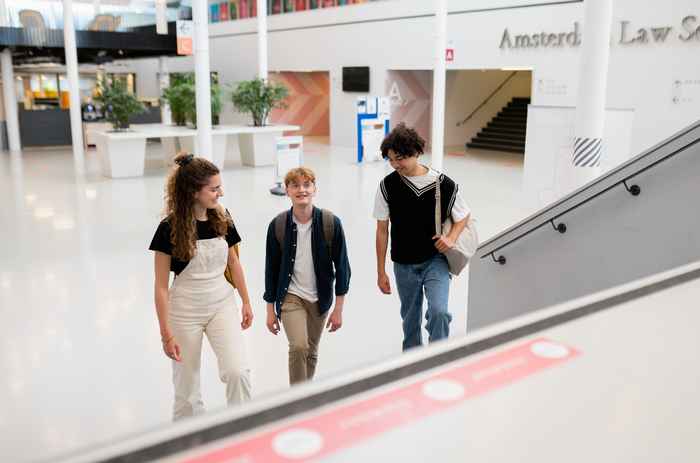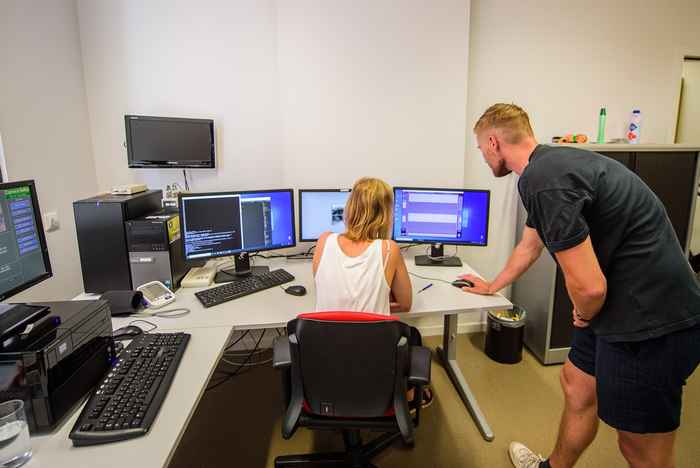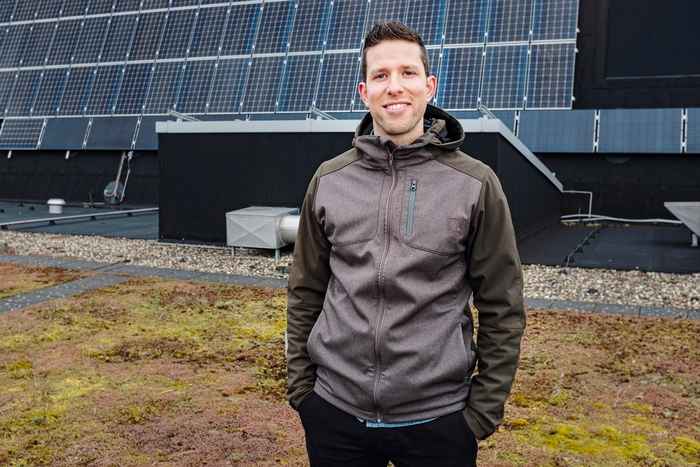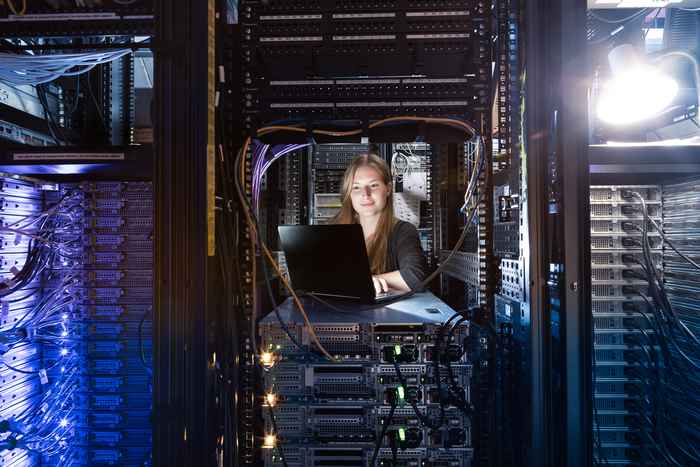The digital agenda of the UvA
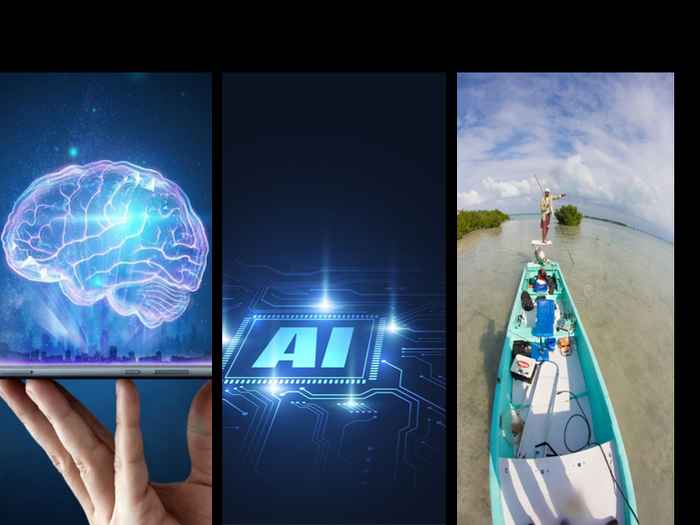
About the Digital Agenda
The digital agenda gives direction to the development of digitisation at the UvA. This agenda is intended as a source of inspiration, ambition and navigation tool. This is much needed for the UvA: digitisation is transforming research, digital resources have become indispensable in education, and we are increasingly aware of our dependence on technology companies.
The digital agenda was drafted in collaboration with a large number of subject matter experts from the faculties and services, and tested by various experts and bodies. At the same time, it is a starting point: in the coming years, many staff members and students will be involved in initiatives. This agenda is therefore intended for all employees who will contribute to it in one way or another. Because we make the digital agenda together.
The Executive Board adopted the digital agenda on 10 May 2022. The resources and budgets required for the initiatives needed to realise the ambitions of the digital agenda, have been determined. Based on the available financial and human resources, initiatives will now be prioritised in consultation with the faculties. Information on the outcome of this prioritisation is expected to follow in January 2023.
On 18 February 2022, students from various faculties and backgrounds defied a severe storm to discuss the digital agenda of the UvA. The goal was simple: ensure that UvA’s digitisation plans match the needs of students, and incorporate their ideas. It turned out to be a very valuable and energic meeting, in which students took full advantage of the opportunity to contribute their ideas.
How can digitisation provide maximum support for lecturers and researchers at the UvA? This question was the focus of a roundtable discussion on 31 March 2022, and a number of interviews with lecturer-researchers. After earlier meetings with students and with support and management staff (OBP), the floor was now given to lecturers and researchers of the Faculty of Science, FEB, FMG and FGw. This provided valuable insights for the further development of the Digital Agenda.
How can digitisation at the UvA support its staff members and students as much as possible? This question was the focus of the second 'campfire session' about the digital agenda of the UvA on 24 March 2022. After an earlier meeting with students, this time the floor was given to staff members of Academic Affairs, Amsterdam Law School, the Faculty of Social and Behavioural Sciences, the Executive Staff, ICT Services, Facility Services, the Administration Centre and Information Management.
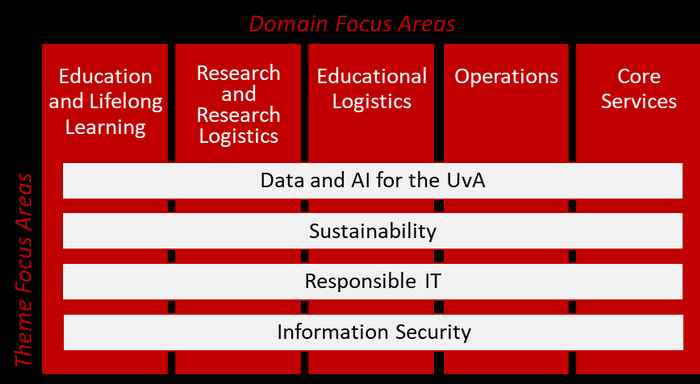
Focus areas
In order to translate our strategic ambitions into goals and initiatives, we have identified nine focus areas. For each area, we formed a diverse focus group to work on this. The starting point is what digitalisation must ultimately deliver for our students, lecturers, researchers and staff. And also: how do you ensure that ideas and plans become reality? Because the digital agenda seems to be about technology, but it is actually about people and how we shape the future of the UvA together with each other and our environment.
Preserving digital sovereignty of universities and researchers
Universities and researchers are crucial for science and society. The research project "Information Law and the Digital Transformation of the University" examines the challenges of the European university sector in a digitising world, such as growing dependence on digital technologies and services, complex legislation for research, and dependence on external data for research. The research report also includes recommendations to universities, and to law- and policymakers.
Policy principles and frameworks
The UvA principles and frameworks for the digital agenda are intended to provide support and direction for choices in realising the digital agenda. They prevent discussions from being held over and over again and are a guide in shaping the digitalisation at the UvA.
Read more about principles and frameworks for the digital agenda.
Contact information
Do you have questions about the digital agenda, or ideas that you would like to share? Please send an email to digital-agenda@uva.nl.
